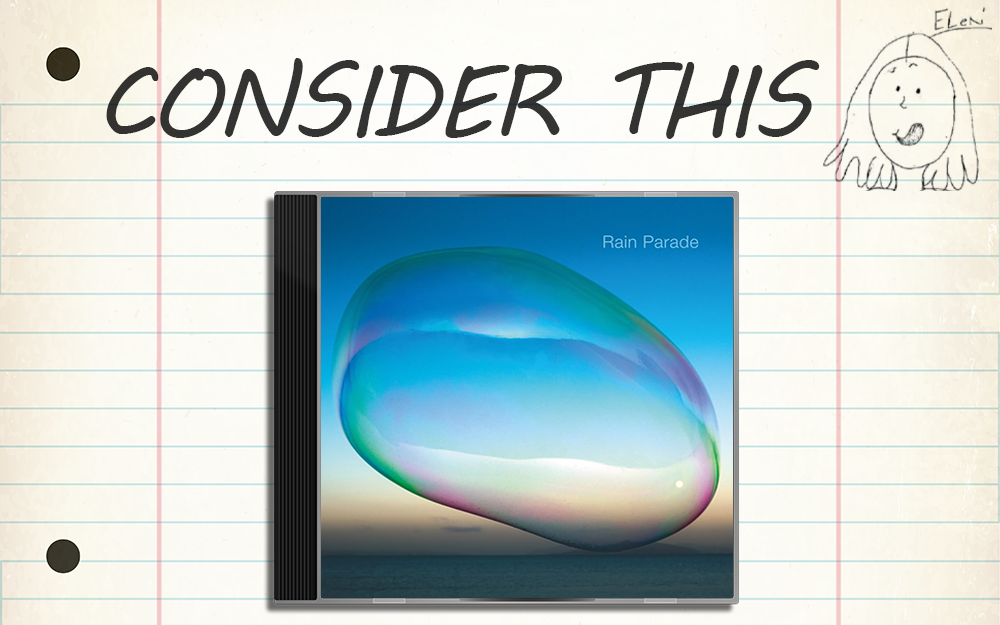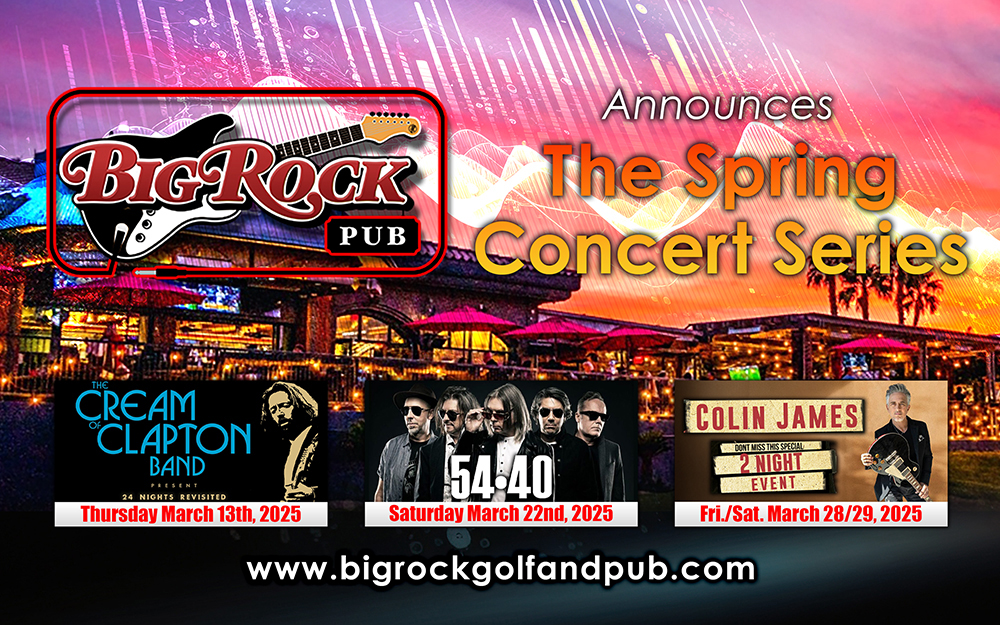
By Eleni P. Austin
Nearly 50 years ago, Punk Rock snarled, scratched, spit and elbowed its way into the cultural zeitgeist. Although it was invented in the bowels of New York and exploded in London, it truly thrived in Los Angeles. Back in the mid ‘70s, L.A. was still a bastion of sun, sand, surf and mellow vibes. But just beneath the smoggy, sunshiny crust, was a sprawling metropolis, a melting pot of dissatisfied, disenfranchised denizens not living the California dream. Punk pioneers like The Germs, The Weirdos, Fear, The Plugz and X tapped into that dichotomy.
It was a surprisingly inclusive scene. The primitive cool of The Germs and The Weirdos happily co-existed alongside the poetic slash and burn of X, the distaff energy of Bags and the Go-Go’s, the Noirish Psychobilly of The Flesh Eaters, the Bluesy Roots Rock of The Blasters, the skinny tie Power Pop of The Plimsouls and the shambolic smorgasbord of Top Jimmy & The Rhythm Pigs. Taking their cues from ‘60s Garage Rock and Psychedelia, The Three O’ Clock, The Bangles, The Dream Syndicate and Rain Parade formed a loose collective known as the Paisley Underground.
L.A. native David Roback and Chicago son Matt Piucci met as roommates when they attended college in Minnesota. Both played guitar and sang. Following graduation, the duo headed to L.A., intent on starting a band. They quickly recruited David’s brother, Steve to play bass (ironically, as kids, the brothers formed The Unconscious with neighbor and future-Bangle Susanna Hoffs). The puzzle pieces all came together when Will Glenn (violin, keys) and Eddie Kalwa (drums), joined the fold. As Rain Parade, their 1983 full-length debut, Emergency Third Rail Power Trip arrived in 1983, exuding a trippy, mystic crystal vision. Ever mercurial, David left the band, going on to form Opal with Kendra Smith and finding mainstream success with Hope Sandoval as Mazzy Star. Sadly, he passed away in early 2020. Matt and Steve continued to carry the Rain Parade torch with a final album, 1985’s Crashing Dream, before moving on with separate projects. In 2012, Matt and Steve, along with John Thoman, resurrected Rain Parade with a sold-out show at San Francisco’s Café du Nord. In 2013, they played a couple benefit shows alongside fellow Paisley progenitors, The Bangles, The Dream Syndicate and The Three O’ Clock. A few years later the four bands went in the recording studio to create 3×4, which found the bands covering each other’s iconic songs. Arriving in early 2019, the album garnered rave reviews.
Now, Rain Parade, which includes John Thoman on guitar and vocals, Stephen Junca on drums and percussion, plus Derek See on guitars, keys and vocals, has released their fourth long-player, Last Rays Of The Dying Sun. The album opens with the one-two punch of “Angel Sister” and “Last Rays Of A Dying Sun.” Squally guitars collide with see-saw bass and a cantilevered beat on “Angel…” Matt and Steve’s laconic harmonies pay homage to a tuned-in temptress: “Something’s coming through you, that’s why I’m turning you in, my angel sister, you’re my real transistor, coming in, coming in live.” A spiky guitar solo uncoils, sparking and pinwheeling across the break.
Flange-y guitar riffs announce the title track. A bit of backwards guitar is folded into the mix alongside tensile bass and a tabla beat. Shadowy lyrics offer up a noirish tableau: “I picked up the loaded dice, threw them only twice, watched it all fall down, she built it right back up, I threw away my gun, the miracle is won, in the rays of a dying sun.” The song’s shapeshifter arrangement keeps the listener guessing. Modal sitar licks intertwine with Who-flavored power chords, just ahead of a walloping drum salvo. By the time we reach the break, lysergic guitars are catapulted into interstellar overdrive.
Psychedelia, Garage and Folk-Pop was always Rain Parade’s preferred musical lingua franca, and happily, that tradition continues. Take “Bring You Back,” the fluttery acoustic jingle-jangle is matched by strafing electric notes, fuzzy bass rippling percussion and a dropped beat. Opaque lyrics plumb the depths of grief: “Miss you so much, I’m like a stranger in my town, I’m a noise without a sound, up and down.” Cascading guitars on the break are exactly what the doctor ordered. As the song winds down, there’s a bit light at the end of the tunnel: “Laughed at love and we let it show, everybody’s sad, but we made it through, give it some time for something new, because we got to see what love can do.”
Then there’s “Other Side Of You,” which is powered by willowy electric riffs, shivery keys, pointillist bass and a flickering beat. Downcast lyrics offer a bit of emotional rescue: “Don’t be sad if you can, in the end, I’m your friend.” But the real lifeline is the ascending guitar solo which initially mirrors the lyrical equivocation before spiraling sky-high, unspooling honeyed notes that sweetly shimmer and sway. The best tracks here are positively kaleidoscopic. “Sunday’s Almost Gone,” is a mid-tempo groover that echoes the same melancholy grandeur the Beach Boys perfected during the Pet Southe era. Chiming guitars sidle around loping bass lines, crushed velvet keys and a chunky backbeat. Lovesick lyrics count on distractions to get through the week: “I’m a little bit down, but I don’t care today, my Sunday’s almost gone, don’t it always seem to go that way, Wednesday come around, she gonna make me feel okay, my mind is gonna keep me happy while you’re away.” A Byrdsy guitar solo takes flight, neatly dovetailing with a bit of bendy eBow that is equal parts mournful and ethereal.
The action slows on the autumnal “Share Your Love.” A pensive meditation on missed opportunities: “It happened down the street, a place where we might meet, and talk about the past, and how it never lasts.” Its sadness is camouflaged by sun-dappled acoustic guitars, high lonesome harmonica, vroom-y electric guitar, ticklish percussion and hushed harmonies.
Meanwhile, “Got The Fear” is spooktacular in all the right ways. A tick-tock beat makes way for skittery guitars, marauding bass and cosmic keys. Hallucinatory lyrics shift from creepy crawly: “Spiders in my bed again, voices in my shrunken head, what you say and what you think, I throw it down the kitchen sink, snakes are crawling on my skin, notify my next on kin, don’t forget to let me out, don’t forget to let me in,” to vaguely homicidal: “Chopped you up in a drink of mine, poured it cleanly down my spine, what you say is what I drink, goes in black and comes out pink, shoot the lights out go to bed, voices in my shrunken head.” At the break, the song rocks back on its muscular haunches, locking into a sludgy groove. A scorching guitar solo slashes through the primordial ooze.
Shifting gears again, downer lyrics are cocooned in the pastoral grace of “Couldn’t Stand To Be Alone.” Choir-boy harmonies are awash in liquid arpeggios, nimble bass lines and a click-clack beat.
The album’s last few songs offer a master class in musical mutability. “Green” is clearly the album’s most trippy track. Whooshy keys partner with angular bass and a rat-a-tat beat. Guitars ping-pong from colicky to shuddery to stentorian. Conversely, “Forgetfulness” is lush and indolent. Finally, “Left The Fire” offers a grandiloquent closing statement. Theremin-esque guitars link up with prickly electric runs, swirly keys, agile bass and a stop-start rhythm. A soaring, almost Prog-Rocky guitar solo arches over the break. It’s tempting to think the final two verses address David Roback’s absence: “We watched you fall into the sun, we didn’t know that you were done,” and acknowledges Rain Parade’s return: We couldn’t see you hit the wall, we’re going home, back to our star, we’re going home back to our sun, bring it back, it’s all begun.” It’s a surprisingly poignant and powerful finish to a great album.
The band relied on a wolf-pack of players, Mark Hanley on keys, vocals and bass, Aryen Frankfurter added strings and Meena Makhijani played tabla. Producer Jim Hill was responsible for treatments and manipulations, vocals and synthesizers. A who’s who of back-up vocalists chimed in, including sisters Vicki and Debbi Peterson from The Bangles, brothers Greg and Thom Moore, Blake Marcus (Rollins Band, Sparks) as well as Darian Sahanaja (Wondermints, Brian Wilson Band) and Rob Bonfiglio (Brian Wilson Band, California Music).
Rain Parade is back, baby! Last Rays Of A Dying Sun doubles down on the phased and dusted Psychedelia, the gauzy Garage Rock sound they resuscitated four decades ago, adding new colors and textures to their sonic palette. It’s a triumphant and thrilling return.












































